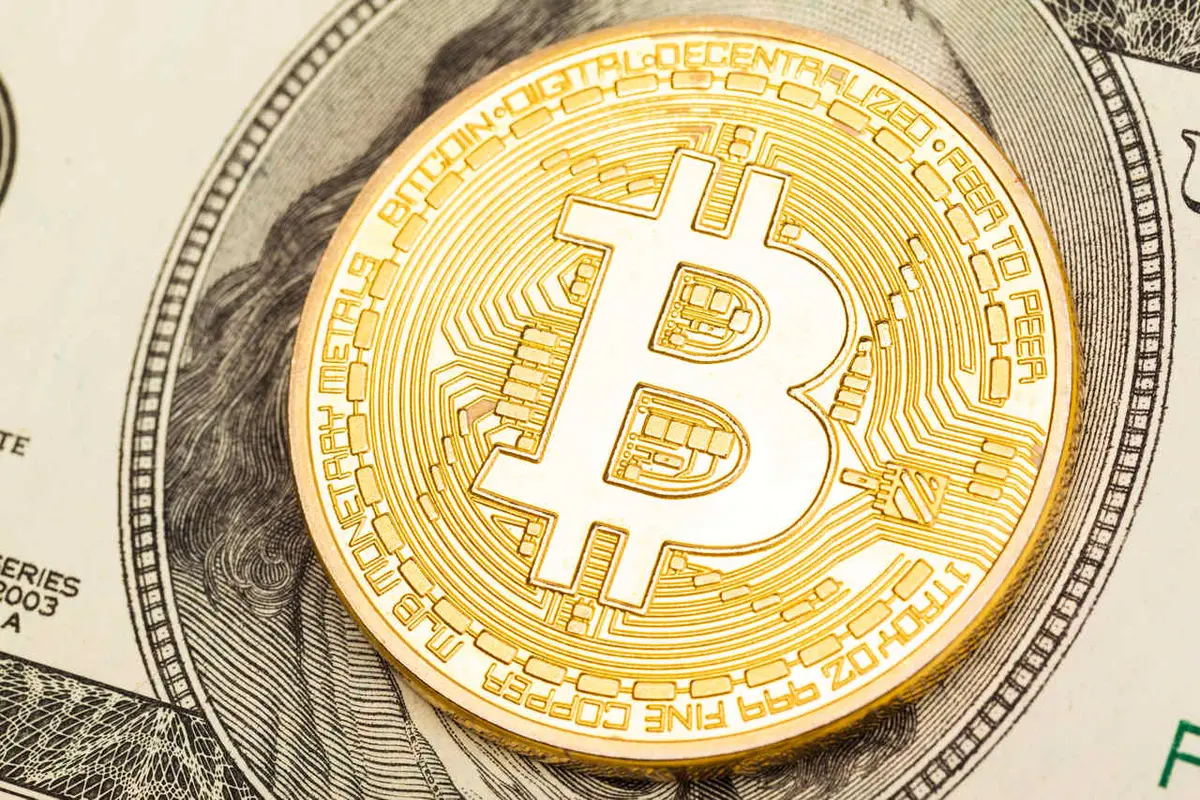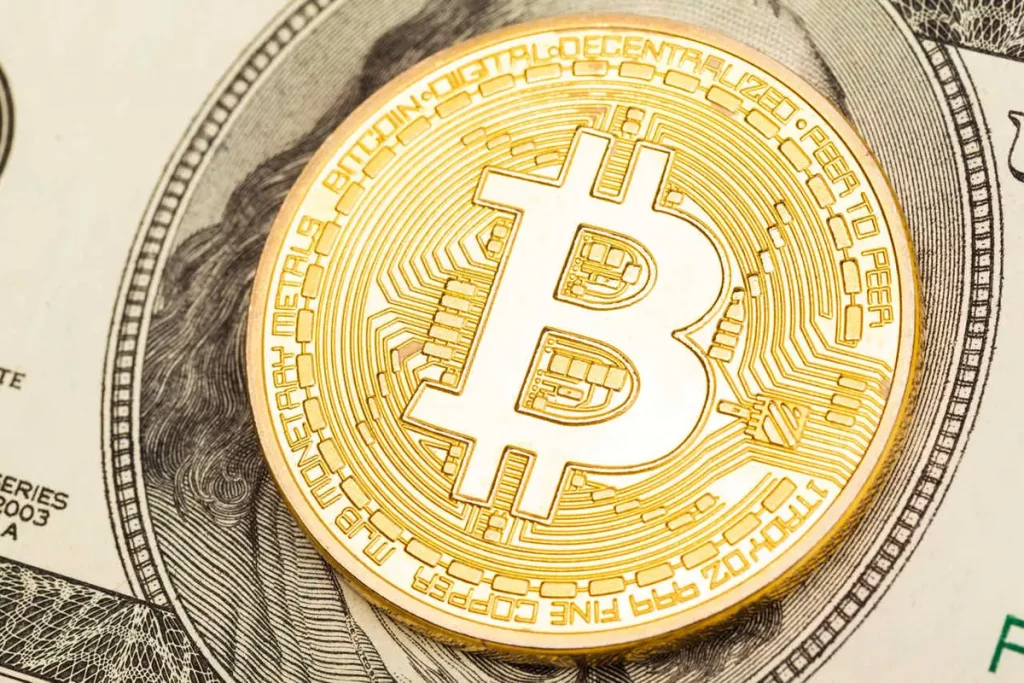What is Bitcoin? Bitcoin is the world’s first and most well-known cryptocurrency. Since its launch in 2009 by the pseudonymous creator Satoshi Nakamoto, Bitcoin has revolutionized the financial industry by introducing a decentralized, peer-to-peer digital currency that operates independently of central banks and traditional financial institutions.
But what exactly is Bitcoin? How does it work? And why is it considered a game-changer in the financial world? This comprehensive guide will explain everything you need to know about Bitcoin, from its basic principles to its potential future impact.
1. What is Bitcoin?

Bitcoin is a digital currency that allows users to send and receive payments directly without the need for intermediaries like banks. It is built on blockchain technology, which ensures security, transparency, and decentralization. Unlike traditional currencies, Bitcoin is not issued or controlled by any government or financial institution.
2. How Does Bitcoin Work?
Bitcoin operates on a decentralized network of computers called nodes. These nodes maintain a public ledger known as the blockchain, which records all Bitcoin transactions. Here’s how the system works:
- Transactions – When a user sends Bitcoin, the transaction is broadcast to the network and grouped into blocks.
- Mining – Miners use computational power to solve complex mathematical puzzles, validate transactions and add new blocks to the blockchain.
- Security – Once a block is added to the blockchain, it becomes immutable, meaning it cannot be altered or deleted.
- Ownership – Bitcoin ownership is determined by private keys, which are cryptographic codes that allow users to access and manage their funds.
3. Key Features of Bitcoin
Bitcoin offers several unique features that differentiate it from traditional financial systems:
3.1. Decentralization
Unlike government-issued currencies (fiat money), Bitcoin operates on a decentralized network, meaning no single entity controls its supply or transactions.
3.2. Limited Supply
Bitcoin has a maximum supply of 21 million coins, making it a scarce digital asset. This fixed supply contrasts with fiat currencies, which can be printed indefinitely, leading to inflation.
3.3. Security and Transparency
Bitcoin transactions are secured by cryptography and recorded on a public blockchain, ensuring transparency and reducing the risk of fraud.
3.4. Low Transaction Fees
Unlike traditional banking and payment systems, Bitcoin transactions often have lower fees, especially for international transfers.
3.5. Borderless Transactions
Bitcoin enables seamless cross-border payments without intermediaries, making it an attractive option for global commerce and remittances.
4. How to Buy and Store Bitcoin
If you’re interested in acquiring Bitcoin, here are the basic steps:
4.1. Choose a Bitcoin Exchange
To buy Bitcoin, you need to sign up on a cryptocurrency exchange such as:
- Coinbase
- Binance
- Kraken
- Bitstamp
These platforms allow users to purchase Bitcoin using fiat currencies (USD, EUR, etc.) or other cryptocurrencies.

4.2. Secure a Bitcoin Wallet
Once you buy Bitcoin, you need a secure wallet to store it. There are several types of wallets:
- Hot Wallets (Online Wallets) – Software wallets like MetaMask or Trust Wallet, which are convenient but more vulnerable to hacking.
- Cold Wallets (Hardware Wallets) – Devices like Ledger or Trezor that offer high security by keeping private keys offline.
4.3. Make Your Purchase
After setting up your exchange account and wallet, you can buy Bitcoin by placing an order on the exchange platform. Bitcoin can be purchased in fractions, so you don’t need a whole coin.
4.4. Transfer to Your Wallet
For security reasons, transferring your Bitcoin from the exchange to your wallet is advisable to maintain complete control over your funds.
5. The Benefits of Bitcoin
Bitcoin offers several advantages that make it an attractive investment and payment method:
- Financial Independence – Users have complete control over their money without reliance on banks.
- Inflation Hedge – Bitcoin is often considered a hedge against inflation due to its fixed supply.
- Security and Privacy – Transactions are pseudonymous, enhancing user privacy.
- Global Adoption – Increasingly accepted by businesses and individuals worldwide.
6. Risks and Challenges of Bitcoin
Despite its benefits, Bitcoin also has some risks and challenges:
6.1. Volatility
Bitcoin prices can be highly volatile, with significant price swings occurring within short periods.
6.2. Regulatory Uncertainty
Governments and financial institutions are still figuring out how to regulate cryptocurrencies, leading to potential legal and tax implications.
6.3. Security Threats
Although Bitcoin is secure, exchanges and wallets can be hacked, leading to potential losses.
6.4. Irreversible Transactions
Unlike credit card payments, Bitcoin transactions cannot be reversed, making it crucial to double-check before sending funds.
7. The Future of Bitcoin
Bitcoin has already established itself as a revolutionary financial asset, but what does the future hold?
7.1. Increased Adoption
More businesses and institutions are beginning to accept Bitcoin as a payment method, which could drive its mainstream adoption.
7.2. Institutional Investment
Large companies and hedge funds show increased interest in Bitcoin as an investment asset.
7.3. Technological Advancements

Innovations like the Lightning Network aim to improve Bitcoin’s scalability and transaction speed.
7.4. Potential Regulations
While regulations pose challenges, they also provide legitimacy and stability to the Bitcoin ecosystem.
Conclusion
Bitcoin is a groundbreaking digital currency that offers numerous advantages over traditional financial systems. It enables secure, decentralized, and borderless transactions while hedging against inflation. However, it also comes with risks, such as volatility and regulatory challenges.
Whether you’re considering investing in Bitcoin or using it for transactions, it’s essential to do thorough research and stay informed about the latest developments in the crypto space. As the world moves towards a digital economy, Bitcoin remains at the forefront of financial innovation, shaping the future of money.
Additionally, Hac Ecommerce offers a range of comprehensive services designed to support and empower businesses operating in the POD (Print on Demand) industry. These services include fulfillment solutions, payment account rentals, and design cloning, all of which are tailored to meet the unique needs of entrepreneurs in this niche.


